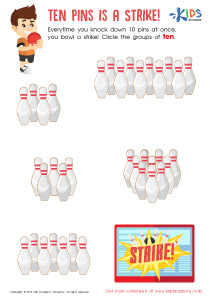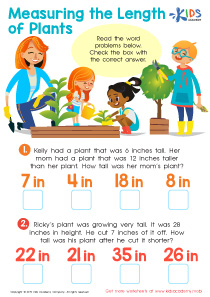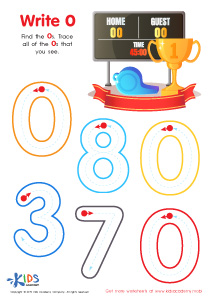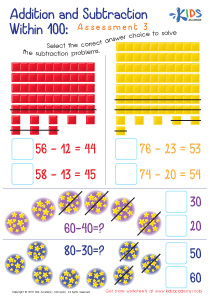Counting skills Easy Numbers up to 100 Worksheets for Ages 5-7
6 filtered results
-
From - To
Discover our "Counting Skills: Easy Numbers up to 100" worksheets, designed for children ages 5-7! These engaging and interactive resources promote essential counting skills while keeping learning fun. Our worksheets feature vibrant visuals and age-appropriate exercises that encourage students to practice counting, identifying numbers, and developing reverse counting techniques. Aligned with early learning standards, these activities are perfect for classroom use or at-home practice, helping children build foundational math skills with confidence. Empower young learners as they explore numbers up to 100 through enjoyable worksheets that spark curiosity and foster a love for math. Start counting today!
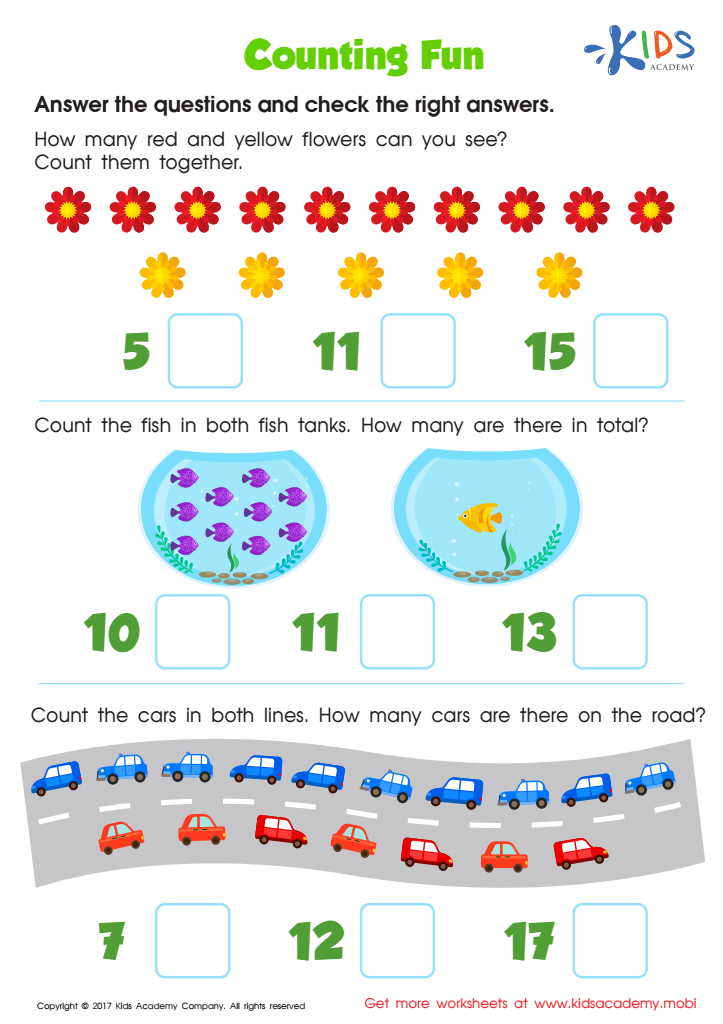

Counting Fun Worksheet
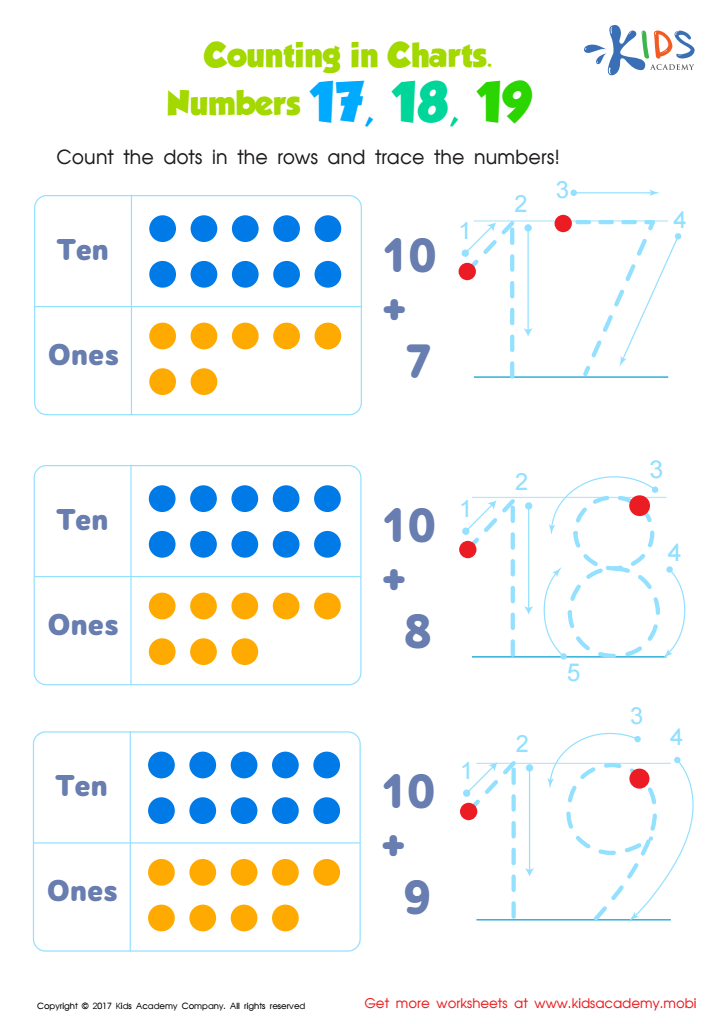

Kindergarten Number Tracing: Counting in Charts Worksheet
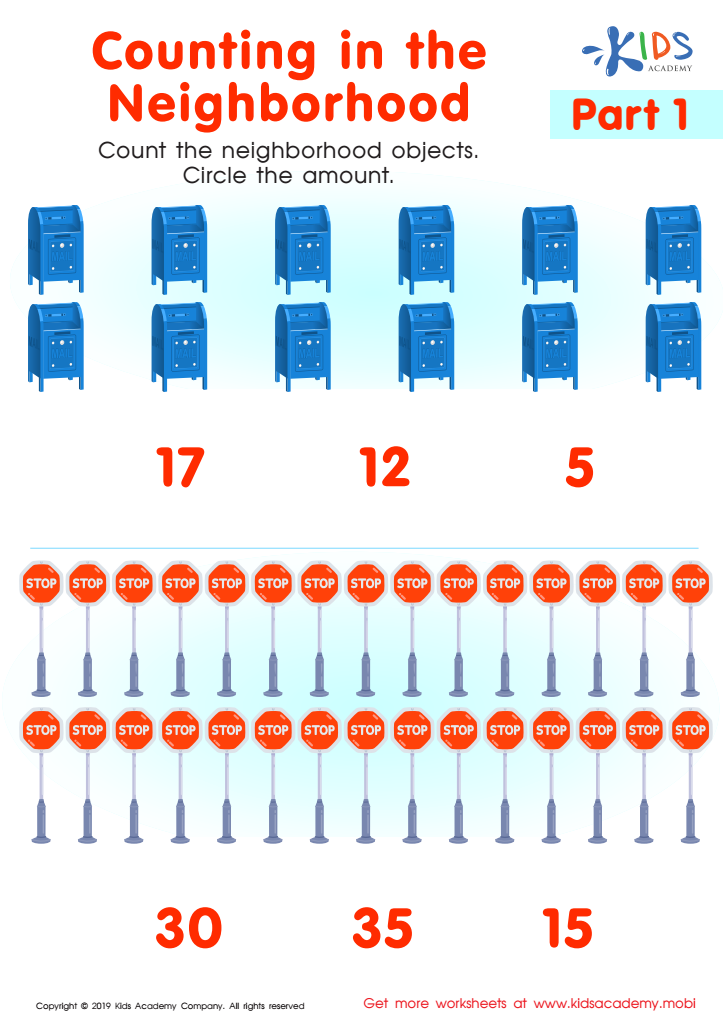

Counting in the Neighborhood Part1 Worksheet
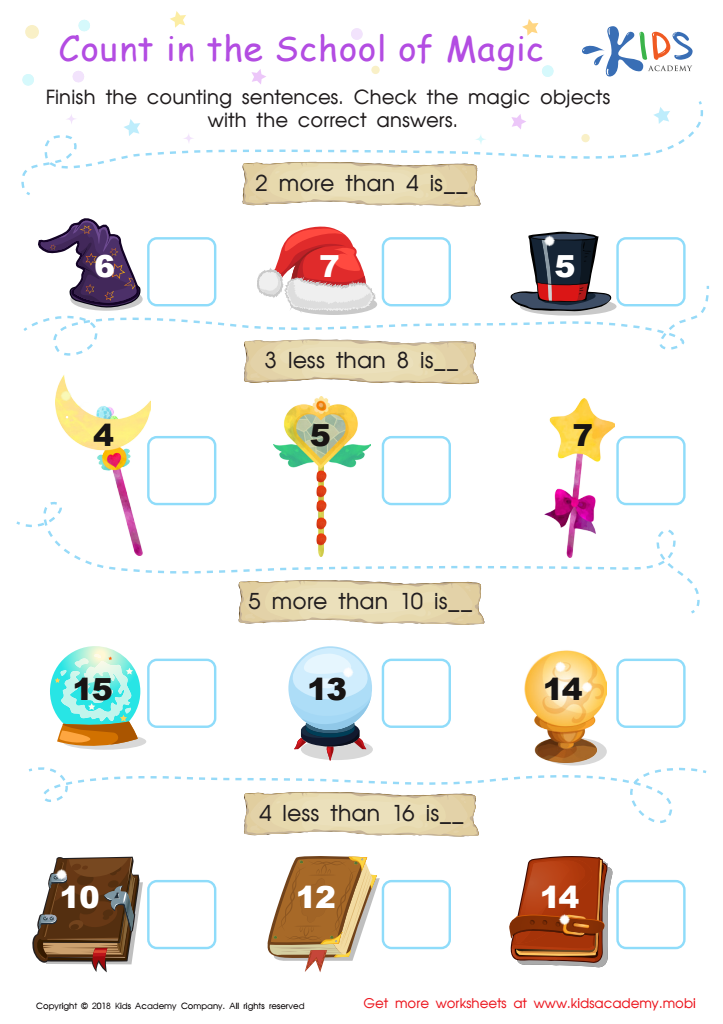

Count in the School of Magic Worksheet
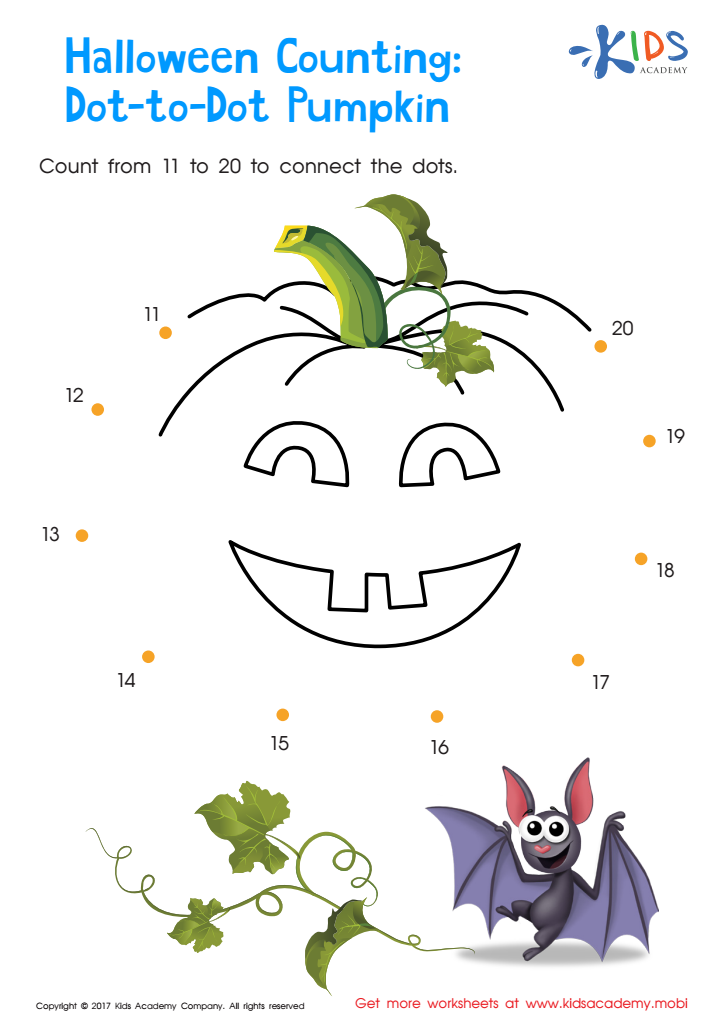

Ordering 11–20: Halloween Counting Worksheet
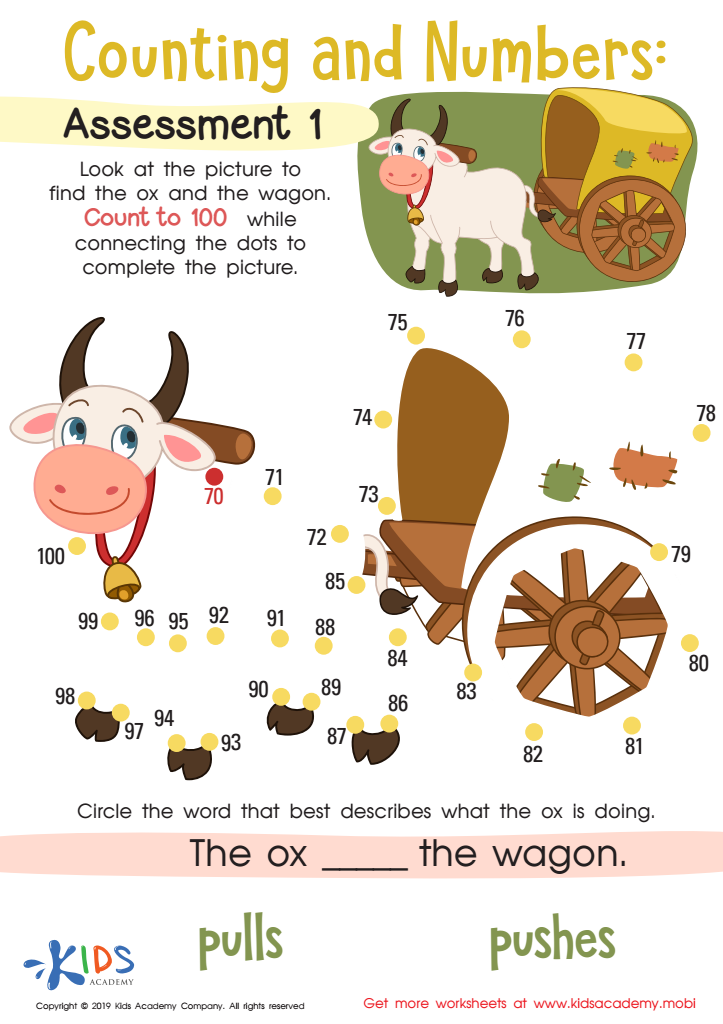

Counting and Numbers: Assessment 1 Worksheet
Counting skills, particularly with easy numbers up to 100, are fundamental for children aged 5-7 as they lay the groundwork for future mathematical understanding and everyday problem-solving. At this critical stage, children are developing essential cognitive skills, and mastering counting helps build their confidence in handling numbers.
Firstly, counting aids in number recognition, enabling children to identify, understand, and interact with numbers. It fosters essential skills such as sorting, grouping, and one-to-one correspondence, which are crucial for arithmetic operations. Parents and educators nurturing these abilities can significantly enhance a child’s grasp of concepts like addition and subtraction, which are foundational for more advanced math later on.
Moreover, counting promotes logical thinking and sequential reasoning. Engaging in counting activities transforms learning into a fun and interactive experience, boosting motivation. As children begin to notice patterns and develop estimates, they enhance their problem-solving skills, which are invaluable across various domains of learning.
By prioritizing counting skills in early education, parents and teachers set a strong foundation that benefits children's academic pursuits, practical life skills, and overall cognitive development. This focus ultimately encourages a positive attitude toward math and learning in general.
 Assign to My Students
Assign to My Students





%20(1).jpg)


